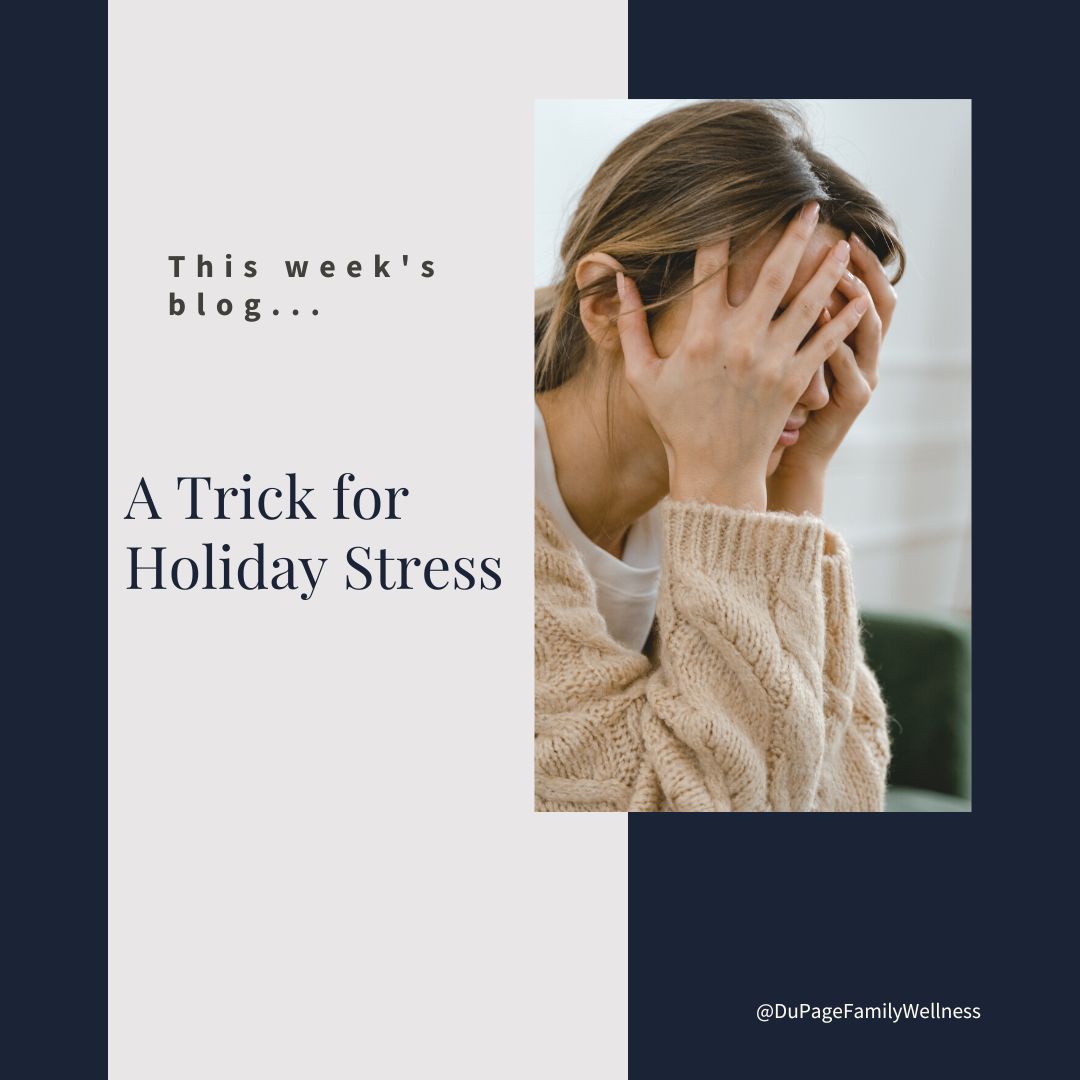 The holidays are a wonderful time of the year, but they can also be stressful. Many of us live at our capacity throughout the year. So, when we are expected to add extra responsibilities to our already too full plates it can feel overwhelming.
The holidays are a wonderful time of the year, but they can also be stressful. Many of us live at our capacity throughout the year. So, when we are expected to add extra responsibilities to our already too full plates it can feel overwhelming.
What can we do if we don’t want to let stress distract us from the joy of the holidays? Let’s start with self-care! I know many of you just groaned internally. Self-care may seem like one more thing on your to-do-list, but it doesn’t have to be difficult.
Finding simple ways to take care of yourself is a key component to getting through the holidays with as much joy as possible. It doesn’t have to take long, just a few minutes of intentional self-care can reset your system.
Let’s look at some ways to incorporate these practices into your holidays.
Grounding
Grounding is simply bringing your awareness back to the present moment by focusing on your body and surroundings. The key is the intention and awareness behind the action.
It can be as simple as
- closing your eyes and paying attention to your breath:
- looking at things in your surroundings one by one.
- noticing sensory input like a soft blanket or pillow.
For more directed grounding exercise check out the following:
- Box Breathing (also known as Four Square breathing)
- 5-4-3-2-1
- Basic Breathing for Stress Management (from @core360belt)
- Self-Compassion Meditations (with Kristen Neff)
Something enjoyable
Schedule something that you enjoy every day. It doesn’t have to take more than five minutes or cost anything at all. Seriously, it could be as simple as blowing bubbles in your milk. Just include one thing that you can look forward to.
Each person will be different based on personality, circumstance, and values. Think about what would be life-giving to you. Some ideas include:
- calling a friend
- giving yourself five minutes of solitude
- going for a quick run
- taking time to read.
It doesn’t matter what anyone else thinks, the important thing is to choose something that is enjoyable for you.
Healthy Boundaries
Having healthy boundaries can be especially challenging during the holidays but is an important part of self-care. There are so many expectations that we often don’t consider what is best for us. Always going along with what others want can leave us overwhelmed and depleted.
When a request is made it is often helpful to slow things down. You can tell people you will check your schedule and get back with them. Then you can consider what you are willing to give; financially, physically, and even emotionally.
You may find you want to say “yes” to the request, but it’s important to give yourself permission to say “no”. That one little word, though hard to say, can remove a lot of unwanted stress from your holidays.
Practice Gratitude
I know we just talked about this, but it is too important to leave out. Feelings of gratitude are good for our brains. They activate the hypothalamus and flood our brains with the feel-good hormone dopamine. Studies have actually found that gratitude decreased the prominent stress hormone cortisol.
When we intentionally place our focus on things that bring us pleasure, we can cultivate gratitude in an authentic way. It doesn’t have to be anything big, being thankful for little things matters too. For more ideas on gratitude refer back to “Thanksgiving: A Springboard to Gratitude Practices.”
Acknowledge Difficult Emotions
During this season where everyone says you should be happy, it can feel very isolating to deal with “negative” emotions. But the truth is that many people struggle with the holidays. Whether you understand where the sadness or anger comes from or not, there is a reason you feel the way you do.
It may seem like you are expected to push these emotions away. Pushing these difficult emotions aside however can have a negative effect on your mental, emotional, and physical well-being. It is important to allow yourself to lean into these painful emotions and accept them without judgment.
Difficult emotions tend to come like a wave. Let them wash over you and then pass on. The key is learning to lean into these emotions to the extent you are able to without dysregulating your nervous system.
If you find the intensity of the emotions is too much or you stay in these difficult emotions too long, you may want to reach out for some support. Many people find working with a therapist allows them to more fully process their emotions and provides them with the resources they need for their emotional wellbeing.
I hope you have a lovely holiday with lots of self-care woven into the season!
Dr. Jamie

